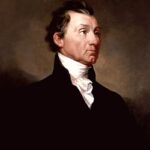President James Monroe faced his greatest crisis when General Andrew Jackson exceeded orders during the First Seminole War. Jackson’s Florida invasion began as a mission to stop Seminole raids from Spanish territory.
The Unauthorized Military Action
Monroe gave Jackson vague instructions to pursue Seminoles across the border if necessary. Jackson interpreted this as carte blanche for full invasion. He captured Spanish forts at St. Marks and Pensacola without authorization. The general also executed two British subjects, Alexander Arbuthnot and Robert Ambrister. ⚠️ These actions violated international law and Spanish sovereignty.
Monroe’s Failed Leadership
The president failed to establish clear boundaries for military action. Monroe’s cabinet demanded Jackson’s censure for exceeding orders. Secretary of War John C. Calhoun secretly wanted Jackson court-martialed. Only Secretary of State John Quincy Adams defended the invasion publicly. 📊 Congress debated Jackson’s actions for months in heated sessions.
International Diplomatic Crisis
Britain demanded explanations for executing its citizens on foreign soil. Spain protested the invasion as an act of war. Monroe’s administration scrambled to avoid international conflict while defending American interests.
Impact:
Jackson’s Florida invasion created lasting consequences for American foreign policy and presidential war powers. The crisis exposed weaknesses in Monroe’s leadership during critical moments.
Immediate Diplomatic Fallout
🌍 Britain and Spain both threatened military retaliation against American actions. Monroe’s government spent months in delicate negotiations to prevent war. Secretary Adams convinced Spain to cede Florida rather than fight. The Adams-Onís Treaty of 1819 formalized Spanish territorial concessions. Congress remained deeply divided over executive military authority.
Constitutional Questions About War Powers
The invasion raised fundamental questions about presidential control over military operations. Jackson’s Florida invasion demonstrated gaps between civilian and military command structures. Future presidents would face similar challenges controlling ambitious generals. The precedent influenced debates about executive war powers for decades. These constitutional issues would resurface during later military conflicts.
Political Ramifications for Key Figures
🔥 Monroe’s reputation suffered from his inability to control Jackson effectively. Calhoun’s secret opposition to Jackson damaged their future political relationship. Adams gained influence by successfully defending controversial military actions diplomatically. Jackson emerged stronger politically despite exceeding his authority. The crisis shaped Jackson’s eventual presidential campaign and populist appeal.
